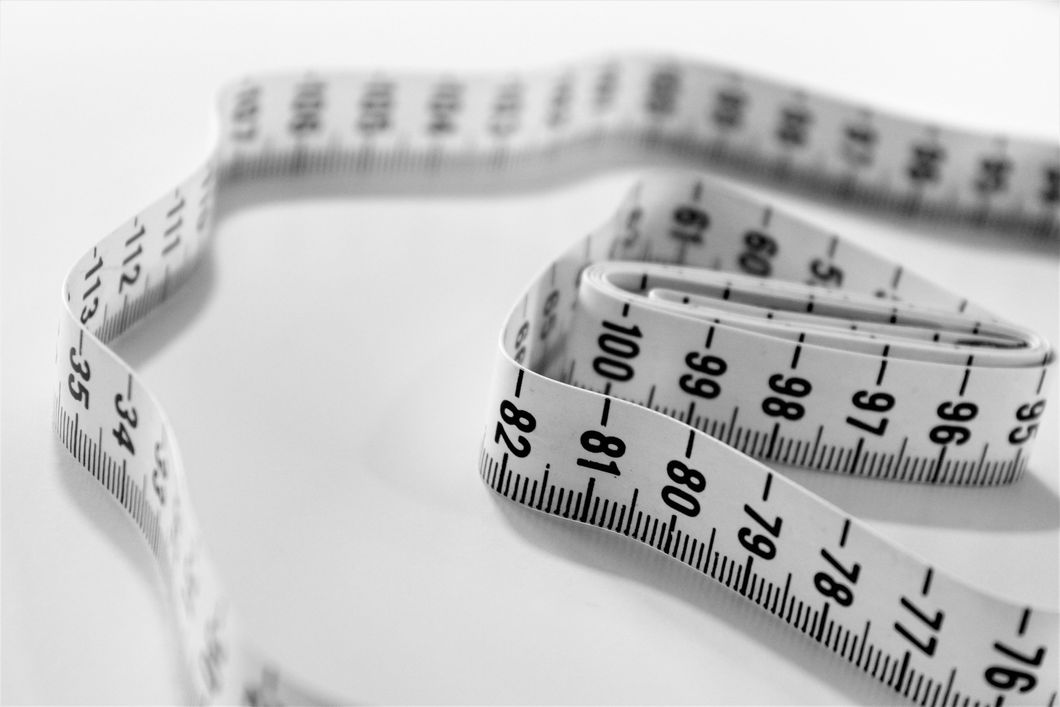As Someone Who Struggles With Body Dysmorphia, I Can't Stand Diet Culture
Mental illness should not be a marketing appeal.
From the outside, I am a healthy college student. However, what you don't see when you sit next to me in class or pass me on campus is my struggle with body dysmorphia. This has been an issue since my early teenage years, and while I've grown in confidence and self-care, I'm not perfect.
Anyone of any gender and body type can have body dysmorphia. I'm actually quite thin, but some days it doesn't feel like enough. This self-consciousness occupies my thoughts and impacts how I eat, exercise, and feel---and ultimately makes me see my body as something that it is not.
Because of the media, we often associate these body struggles with younger teens. The National Eating Disorder Association reports that 30 million people will struggle with an eating disorder during their lifetime---many of which actually begin during college.
The new year is here, which is a time for many people to share their resolutions. This is also the time of year when diet and exercise fads are born---which reiterates that being skinny is the only path to being happy.
Eating healthy and exercising are wonderful things for one's mental and physical health, but encouraging a thin ideal is toxic and outdated. Being underweight is just as dangerous and hard on your organs as being overweight.
Diets that encourage people to cut certain types of food from their life tend to do more harm than good. I recently began following Steph Grasso, a licensed dietician who shares nutrition tips on TikTok. Grasso advocates against diet fads, and in fact reminds her clients and viewers that carbs are not bad---and needed by the body. In many of her videos, she reiterates that the best way to lose weight is not to remove foods, but rather to increase one's protein and vegetable intake. Eating more protein and vegetables provides longer-lasting fuel for the body and leaves you feeling full for a longer period of time.
Oh, and that mindset of eating only 1,200 calories a day? For an average adult, that is an insufficient amount of calories that will cause your body to store fat over time. Every individual is different, but moderation is key. As my roommate likes to tell me on hard days, "no food is bad food in moderation". We must eat to live. There is no shame in some indulgence, either. If eating one salad won't make you skinny, eating one cookie is not going to make you fat.
What disgusts me most are the online trends that glamorize eating disorders---and make them competitive. These Instagram posts and TikTok's are all about who can lose the most weight, be the thinnest, and ultimately how skinny one can be before their organs shut down. It's time to recognize that body-type should not function like fast-fashion. The "perfect" body-ideal changes every decade, making way for diet companies to target the groups of people that don't fall into the "trendy" body-type. All bodies are different. These trends (often with little scientific evidence to support their cause) are made by people who profit off of body-shaming and convincing people that their happiness should stem from their outer appearance. This is not okay.
The information I've learned from Steph Grasso's platform has helped me build a healthier relationship with food and view my body as something that needs to be sustained rather than punished. Whatever your health needs are, I hope that you treat your body kindly and make small, slow changes that are aimed to make you "healthy" rather than skinny.
Diet culture, like the culture that surrounds eating disorders, is competitive in the worst of ways. Restricted eating, eating disorders, and body dysmorphia are not as simple as forgetting to have a mid-morning snack. When someone with these conditions begins to limit their caloric intake, it often spirals out of control into an obsession. The calories consumed per day become less and less and it becomes harder for the person to even consider eating a full-meal. Certain foods---often pleasure foods like pizza or a dessert can be even more triggering to think about eating. To a healthy person, an occasional splurge is no big deal. But to someone who has a poor relationship with food, it can be a huge accomplishment to eat a slice of pizza.
Don't let diet companies trick you into thinking your self-worth comes from your body image. And certainly don't let these companies convince you that starving yourself is the best option for achieving an ideal body. I know it's easier said than done, but start viewing food as something that keeps you alive and gives you the energy to do all the things you love. You'll be much happier when you stop seeing it as the enemy. You are beautiful, and you are enough.
If you or someone you know struggles with an eating disorder, seek help from the National Eating Disorders Association or call 1-(800) 931-2237.

































